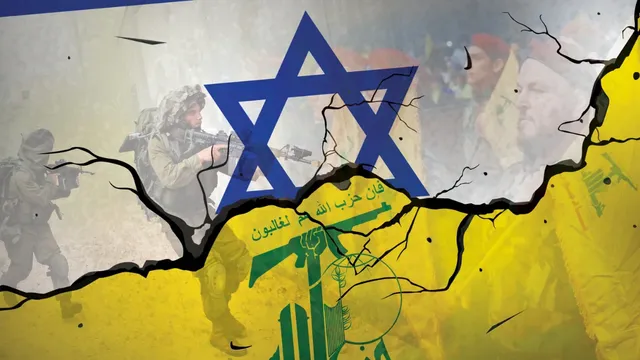
Israel strikes Beirut targeting Hezbollah commander amid escalating conflict
2024-10-01 12:08- The Israeli airstrike on October 6, 2023, targeted Hezbollah's headquarters in Beirut, killing its leader and a senior Iranian general.
- This event marks a significant escalation in the ongoing conflict, which has already resulted in extensive military operations and high casualties.
- The assassination of Nasrallah raises concerns about Iran's potential retaliation and the broader implications for regional stability.
Express your sentiment!
Insights
On October 6, 2023, an Israeli airstrike in Beirut resulted in the death of Hezbollah leader Hassan Nasrallah, marking a significant escalation in the ongoing conflict between Israel and Hezbollah. The airstrike also killed a prominent general in Iran's Revolutionary Guard, further intensifying tensions in the region. Nasrallah had led Hezbollah for over three decades, and his assassination is seen as a critical blow to Iran's influence in Lebanon and its strategy of using regional militias as proxies against Israel. Following the strike, Iran's leadership convened an emergency meeting to discuss potential responses, indicating the gravity of the situation. The conflict, which began with Hezbollah's support for Hamas in October 2023, has led to extensive military operations and significant casualties on both sides, with over 1,500 reported deaths in Lebanon alone since the escalation began. The situation remains volatile, with fears of a broader regional conflict as Iran weighs its options for retaliation against Israel.
Contexts
The conflict between Hezbollah and Israel has escalated dramatically in recent months, marked by the recent killing of Hezbollah leader Hassan Nasrallah in an Israeli airstrike on Beirut. This attack, which also claimed the lives of several other Hezbollah commanders, has intensified the ongoing exchanges of fire across the Lebanese-Israeli border that began in October 2023, coinciding with the war on Gaza. As the situation deteriorates, both sides have engaged in a series of retaliatory strikes, with Israel targeting numerous Hezbollah positions in southern Lebanon and the Bekaa Valley. Hezbollah, a powerful Iranian-backed militia, has been a significant player in the region since its formation during the Israeli occupation of Lebanon in the 1980s. By 1985, the group had grown strong enough to force Israeli troops to withdraw to the Litani River, establishing a so-called 'security zone' that was policed by the South Lebanon Army, an Israeli proxy. Over the years, Hezbollah has transitioned from a militant group to a political force, securing a substantial presence in Lebanon's parliament. The most violent confrontation between the two sides occurred in 2006, following Hezbollah's kidnapping of Israeli soldiers, which led to a month-long war resulting in significant casualties on both sides. The conflict has continued to evolve, with Hezbollah now estimated to possess around 150,000 rockets, posing a serious threat to Israeli cities. In response, Israel has bolstered its air defenses, preparing for the possibility of a new war. As the situation remains volatile, the international community watches closely, concerned about the potential for a broader regional conflict. The ongoing violence has already displaced thousands and left a trail of destruction, with both Hezbollah and Israel vowing to continue their fight, each claiming to defend their sovereignty and interests in a deeply divided region.